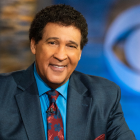The NCAA Division I Council was initially scheduled to vote Wednesday on a one-time transfer waiver that could've theoretically provided immediately eligibility to thousands of student-athletes preparing to enroll at new schools. But after the Board of Directors announced last month that it is not recommending changes to the transfer-waiver process "at this time," the proposal was mostly considered DOA.
Now, it appears, the vote won't even happen.
Consider me disappointed.
And yet you won't hear much outrage, from me or anybody else, when the Division I Council officially kicks the issue down the road because COVID-19 has provided proper cover. It's difficult to fervently disagree with something so relatively trivial in the middle of a national health and economic crisis like we're experiencing right now, you know? So, for that reason, I'm not going to waste my time yelling THE PROPOSAL NEEDS TO BE APPROVED NOW OR ELSE because, frankly, it would feel overdramatic and insincere, and also because the people with the power to approve it have already made up their minds.
But, that said, I will say this: I hope the "at this time" part of the Board of Directors' statement is the most meaningful part of the statement because, truth is, it's long past time for football players, men's and women's basketball players, baseball players and men's ice hockey players to be allowed to move from one school to another without a sit-the-year-out punishment literally no other student-athletes are asked to endure.
It's such an unfair rule.
And I understand this opinion runs counter to the opinion of lots of college coaches -- including many I respect immensely like Tom Izzo, Bob Huggins and Matt Painter. I've had long conversations with coaches about this issue. I understand their concerns. It's just that I've forever believed any assumed drawbacks to allowing basketball players to transfer and play immediately aren't enough to justify the inequitable rule.
High-major coaches fear allowing players to transfer and play immediately would lead to some refusing to "fight through adversity" if they don't get the playing time they desire early in their careers. I agree, it would. Mid-major and low-major coaches fear allowing players to transfer and play immediately would lead to them often losing their best players to bigger and better programs. I agree, it would.
But I just don't see the problem with it.
Student-athletes only get four years of eligibility. If some decide they'd like to transfer down in search of a bigger role, what's so bad about that? If some decide they'd like to transfer up in search of a bigger stage, what's so bad about that? In the end, things would mostly balance out. Michigan State might lose its eighth-best player to Eastern Michigan one year, then take Eastern Michigan's best player the next. And none of it would lead to the demise of college basketball, I promise you. Everything would be fine.
Not to mention fair.
I'm not sure casual fans are aware, but the previously-noted unfairness of the rule should alone be enough to change it. I mean, if it's so bad for basketball players, football players, baseball players, and men's ice hockey players to be allowed to transfer and play immediately, why are soccer players, golfers and all other student-athletes allowed to do it? Why should the NCAA hold student-athletes in different sports to different standards?
There's no good answer to that question.
Here's another question: If it's OK for basketball coaches to leave one school one year and coach at another the next, why is it not OK for basketball players to leave one school one year and play at another the next? And please save the tired "but coaches have buyouts" nonsense. Those are buyouts coaches negotiate in advance and often don't pay themselves anyway. Put simply, buyouts are almost never a real hindrance or deterrent from moving to a new school if a coach truly wants to move to a new school.
And do we ever blame coaches for moving?
Not really.
Take Steve Forbes, for instance.
He just spent five seasons coaching at the mid-major level -- specifically at East Tennessee State -- and did such a good job there that when the Wake Forest position opened it was offered to him. Very quickly, he took it. And everybody celebrated it! Nobody was concerned about what it would do to ETSU's program. Nobody screamed that Forbes better be careful moving from the Southern Conference to the ACC because he might not be as successful. Everybody just recognized that it's always been his dream to coach at the highest level of the sport, so everybody applauded the fact that he's finally going to experience that dream.

Now let's apply the same logic to a player.
Say there's a young man from Nashville who has always dreamed of playing in the SEC. But, for whatever reason, while he was in high school, no SEC schools offered him a scholarship. So he instead ended up playing at East Tennessee State for the same reason Steve Forbes initially ended up coaching at East Tennessee State -- because it was his best option at the time. Now let's say that same young man is just as successful as a player at East Tennessee State as Forbes was as a coach, at which point high-major programs take notice and offer him the opportunity to play in the SEC and realize his lifelong dream.
Why is that a bad thing?
I personally think it's an awesome thing.
And, yes, I'm aware that the numbers show transferring up doesn't normally go the way most players envision -- and that transferring in general can cost student-athletes course credits and set them back academically. Those are all points coaches trying to convince players to stay should make. Some will listen and care. Others won't. Such is life. But, either way, unfair rules designed to restrict shouldn't be a thing.
So go ahead, Division I Council, go ahead and kick the one-time transfer waiver down the road, point to these uncertain times among the reasons, and promise to look at it again in January. Under these circumstances, I suppose it's hard for me or anybody else to get too worked-up about it because there are a million more-important things in this country right now. But someday, and hopefully someday soon, this pandemic will be in our past and no longer an excuse to delay changing this undeniably unfair rule for good. And, when that time comes, I trust you'll (finally) do the right thing -- better late than never.

















